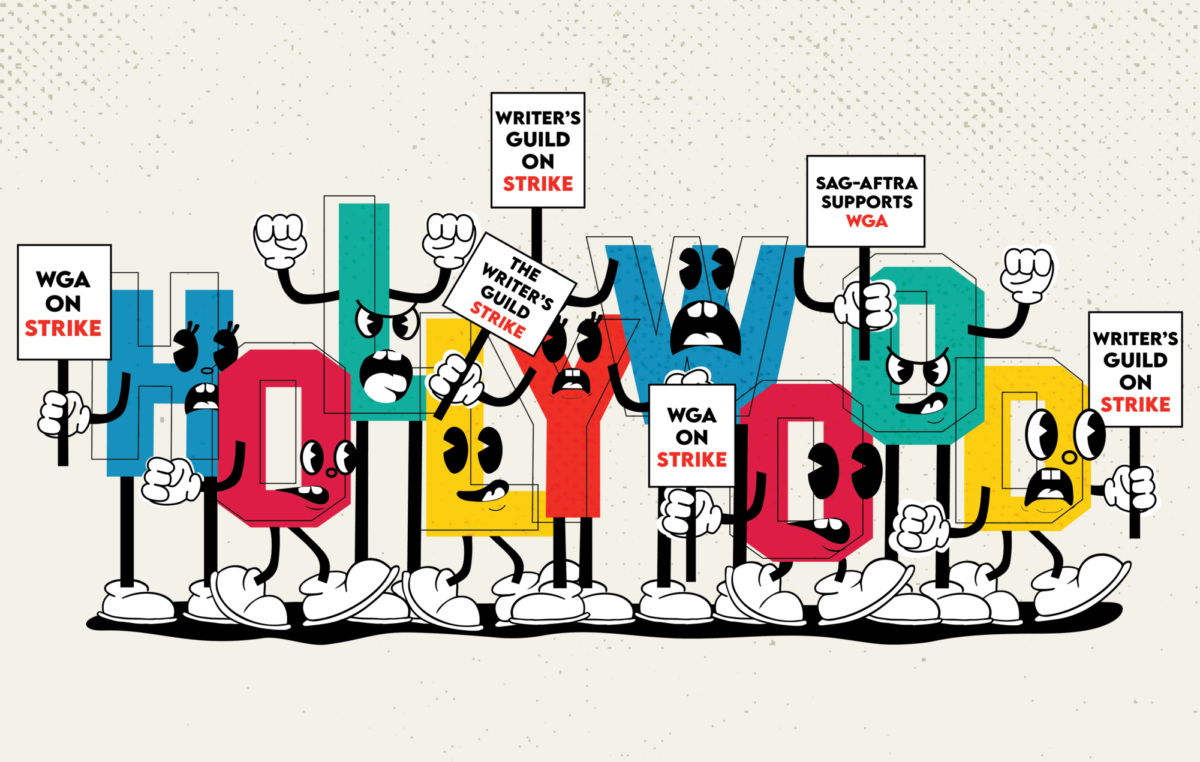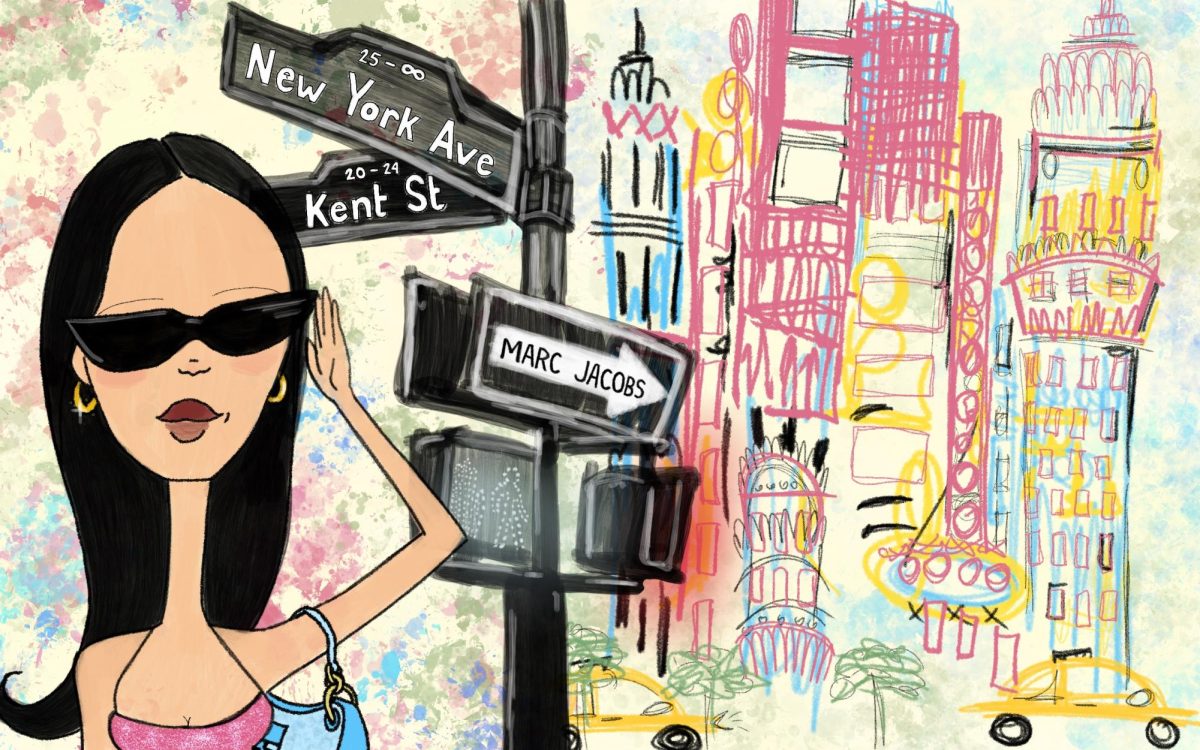A constant stream of entertainment is being hurled at us from every direction on every platform these days. In a time when content is being consumed at increasing speeds, and technology is constantly evolving, many are fearing the perceived inevitability of human jobs becoming obsolete. This fear reached its boiling point on May 1st, 2023 as the Writers Guild of America (WGA), took a stand against the use of AI in screenwriting by going on strike.
The Writers Guild of America (WGA), the Alliance of Motion Picture (AMP) and Television Producers had been negotiating the issues “ …including writers’ demands for stricter protections against artificial intelligence and larger royalties for their work, known in the industry as residuals.” according to NBC News. They also shared, the writers are also “rallying for raised base compensation and improved working conditions”. The WGA members voted to strike if the new contract wasn’t agreeable. That next day, the WGA called for a strike that has been going on ever since.
Professor White, an assistant professor of the School of Media and Journalism at Kent State University, weighed in on the situation. She teaches scriptwriting, directing and producing. She is also a writer, director, producer, editor and actor. Her film, “In the Orchard” was the Winner of Best Feature Film, 2018 Sonoma Film Festival, 2018 Culver City Film Festival, and the 2019 Beaufort Int. Film Festival, where it won Best Film, Best Director, Best Actress, and Actor. She is also the founder of FFI (Female Filmmakers Initiative) here at Kent State.
“Technology is suddenly overwhelming all of us. The film industry is always at the cutting edge of technology, and here we are. The technology used for film is threatening the livelihood of a large group of artists right now,” says Professor White. “Many knew it was coming, but it is still shocking how quickly things are changing. There are so many issues on the table. Not just fair pay and conditions but intellectual property issues as well. We are at a kind of existential threat to those who have dedicated their lives to a craft that supports the industry.”
Late-night shows were some of the first to be halted because of their dire need for writers to produce new content every day. Without writers, the shows can’t run. Writers—the essential backbone of keeping talk shows afloat—led to late-night TV being off the air almost instantly. A handful of showrunners for some of these shows spoke with Deadline about the pros and cons of the strike. One showrunner remarks, “we’ve got to support the writers — our writers are amazing. That said, the rest of the staff is amazing, and I don’t want to see anybody lose their jobs or lose a paycheck. What’s the happy medium there? Figuring that out, it’s not been easy.” It wasn’t long before other Hollywood professionals joined the fight.
In July, The Screen Actors Guild and American Federation of Television and Radio Artists (SAG-AFTRA) joined WGA in fighting for wages, job security and disparities in the industry after their contract with AMPTP expired. The organization represents various studios such as Universal, Netflix and Disney. With these actors joining the strike, movies that were just beginning filming or planned to film have been halted. Most films getting released, along with those with a secured release date, are not allowed to be promoted by the actors at all due to guidelines. According to the SAG-AFTRA strike notice and order agreement, actors cannot take part in promotional appearances of any kind. There has already been a noticeable difference in the promotion of films. Movies like “Barbie”, “Oppenheimer” and “Mission Impossible: Dead Reckoning – Part One” had to cut their promotions for the movie’s release.
“I was on the phone with SAG recently, and no one knows. It’s all very disheartening. I’m not sure that we are even close to this being resolved. I think the studios are digging their feet in. People’s livelihoods are on the line,” says Professor White. “Having spent many years in Hollywood, I can say that everyone works so hard in the industry. It’s not as glamorous as people might think. It takes a lot to survive in our industry, and people want to be protected from losing the ability to take care of their families. But they also want to be valued for their contributions. Fran Drescher said in her speech, ‘If we don’t stand tall now, we are all going to be in trouble.’”
This strike has no end in sight; it could be many more months before there’s even a slight resolve. The greediness of these big corporations to stand by as people fight for better pay, wages and rights, and do nothing about it, is a testament to how far from common decency corporations can go.
Of course, there’s not a lot we can do about the quick advancements of technology, but there is a lot we can do to reinforce the rules against it. The road ahead is bumpy, but the community coming together to continue fighting for what’s right and fair is a start.
Professor White leaves us with a powerful message– “The human impulse of creativity is an extraordinary gift. When technology replaces the artist, we have lost a deep part of the experience of being human. We need human creators and stories in our society to help us all navigate this crazy thing called life; to reflect the truth of what it is to be human. If technology becomes the ruler of us and our voices and our expressions … well… I think that would be a sad day.”
Support Student Media
Hi! I’m Annie Gleydura, A Magazine’s editor-in-chief. My staff and I are committed to bringing you the most important and entertaining news from the realms of fashion, beauty and culture. We are full-time students and hard-working journalists. While we get support from the student media fee and earned revenue such as advertising, both of those continue to decline. Your generous gift of any amount will help enhance our student experience as we grow into working professionals. Please go here to donate to A Magazine.













